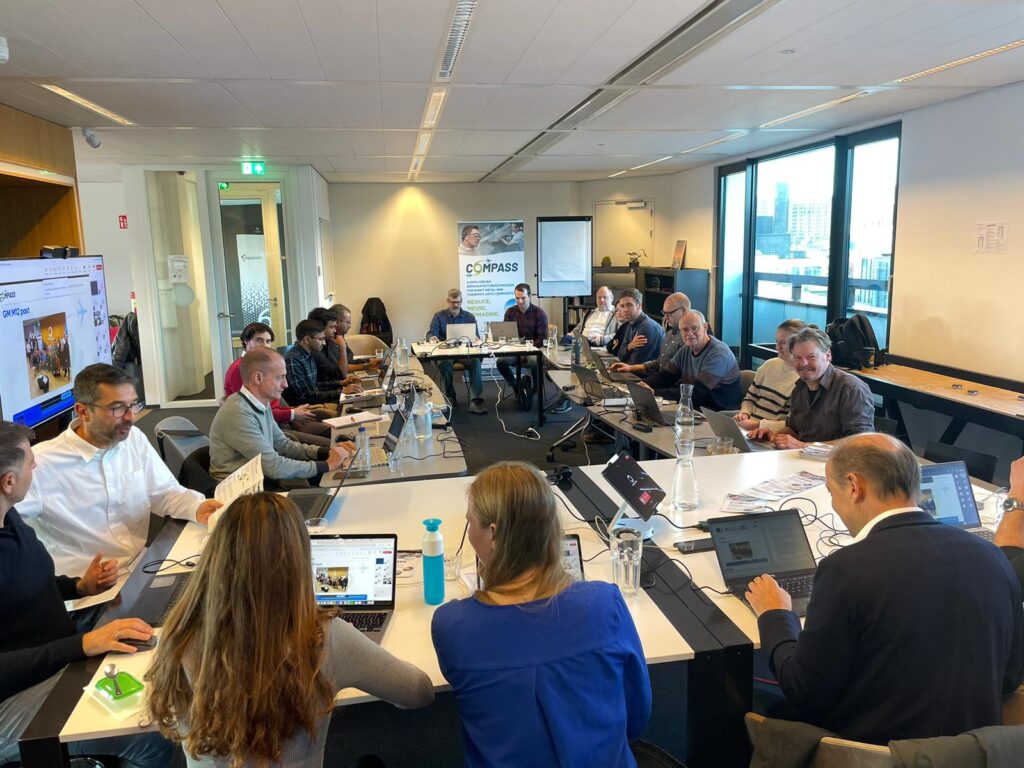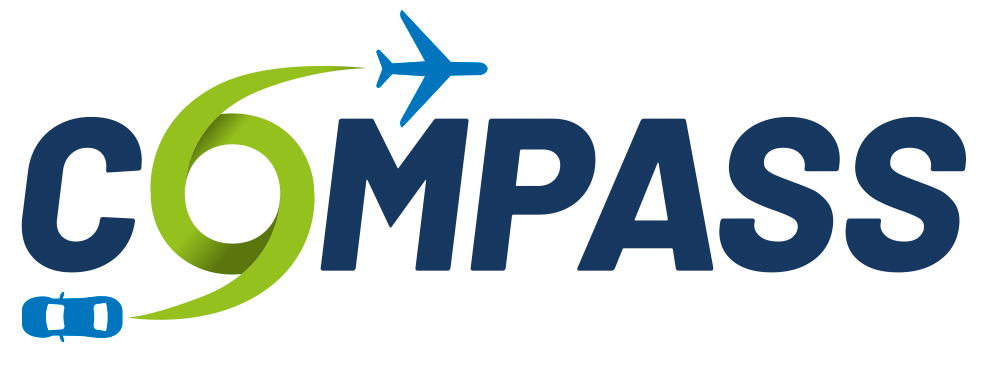Unlocking Business Potential: COMPASS Project’s Path to Market

During the last General Meeting of the COMPASS project in The Hague, NSBproject, the partner leading Dissemination and Exploitation, curated the first exploitation workshop, bringing together all project partners.
The session focused on strategies to transform research results into actionable and market-ready solutions, ensuring that the project’s innovations effectively contribute to the circular economy.
Key Exploitation Insights
- Mapping Key Results, aligning innovative outcomes with their roles in circular value chains.
- Developing Tailored Scenarios, defining targeted exploitation strategies for technology providers and use-case partners, with a strong emphasis on remanufacturing and circularity.
- Collaborative Roadmapping, facilitating discussions among partners to outline an integrated, aggregated value chain approach.
- Phased Strategy Development, advancing from early-stage characterization to readiness metrics, setting the stage for impactful market entry by 2026.
From Research to Market: Next Steps
Building on these foundations, the workshop identified promising business prospects for the project’s results. Current estimates suggest that between 2027 and 2028, the project will introduce new technologies and services into the B2B and industrial markets, of which approximately 64% will be commercial and capable of supporting companies engaged in production, dismantling, remanufacturing, and product lifecycle management.
These innovations will enhance process efficiency, quality control, and traceability across sectors such as:
- Aerospace
- Automotive
- Advanced Manufacturing
- Circular Economy & Sustainability – Implementation of Digital Product Passports for end-of-life component management and promotion of reuse and recycling.
- MRO (Maintenance, Repair & Overhaul)
- Material Science & Engineering
The primary objective of these technologies is to reduce waste, optimize efficiency, and accelerate the transition toward more sustainable production and reuse models.
Additionally, by the end of 2025, stakeholder engagement activities are planned to assess market sentiment and refine commercialization strategies. To ensure a smooth market transition, COMPASS is leveraging advanced validation tools, integrating multidimensional technical assessments of the developed innovations with economic and commercial feasibility analyses.
These methodologies, presented during the workshop, received highly positive feedback from participants, confirming their effectiveness in shaping viable business models.
Through a structured approach and the expertise of its partners, the COMPASS project continues to drive the transformation of research into real-world impact, fostering innovation and sustainability in key industries.
